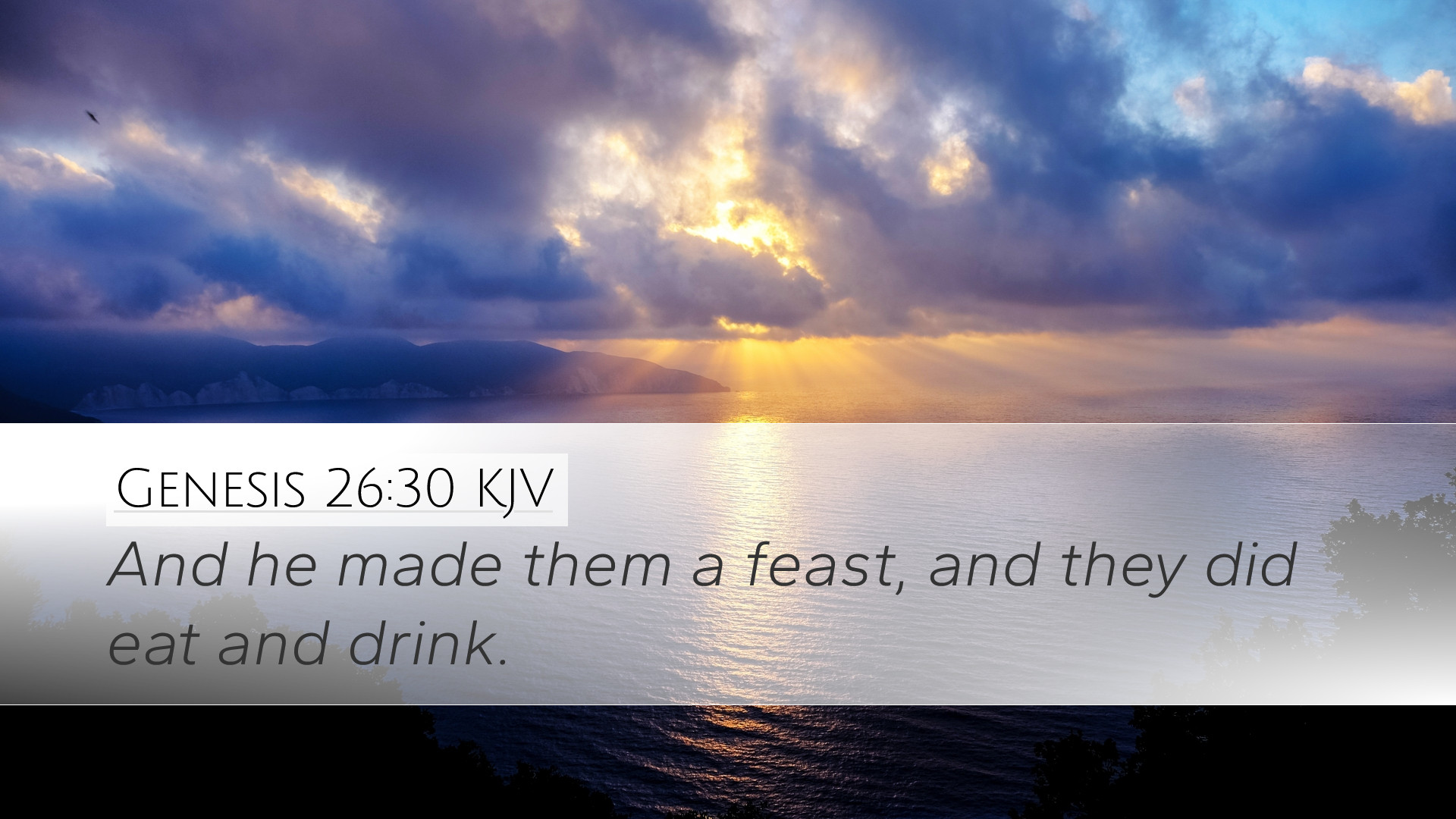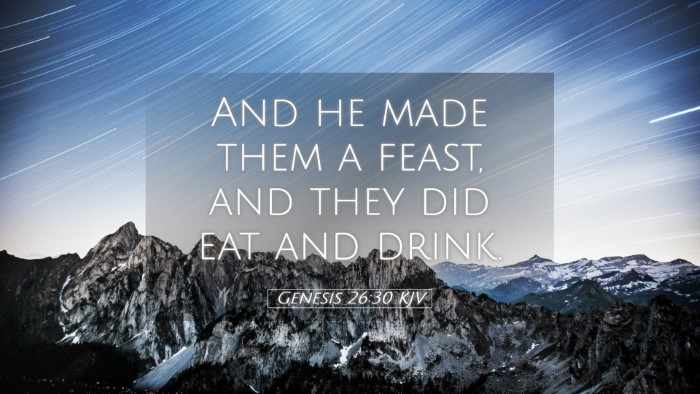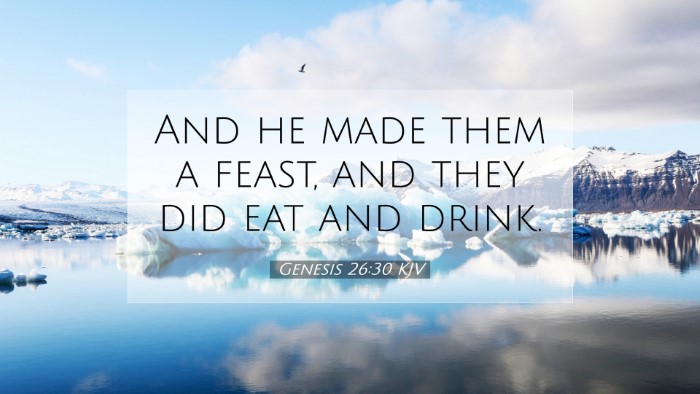Commentary on Genesis 26:30
Genesis 26:30 states: “And he made them a feast, and they did eat and drink.” This verse comes in the context of Isaac's dealings with Abimelech, the king of the Philistines, after a period of conflict and misunderstanding regarding the wells that Isaac had dug. In analyzing this scripture, we will draw insights from several public domain commentaries, offering a comprehensive exploration of its theological depth and practical implications.
Contextual Overview
The events leading to this verse involve disputes over water rights, a significant issue in arid regions like Gerar where Isaac settled. The wells he re-dug were wells originally dug by his father, Abraham. The conflicts highlight issues of inheritance, identity, and divine promises that are characteristic of the patriarchal narratives. When examining Isaac's interactions with the Philistines, we see themes of peace, reconciliation, and hospitality emerge, culminating in the feast described in this verse.
The Significance of Feasting
The act of making a feast holds considerable significance in biblical culture, embodying themes of reconciliation and fellowship. Matthew Henry remarks that a feast is a sign of goodwill, suggesting that Isaac was extending an olive branch to Abimelech after previous hostilities. In the ancient Near Eastern context, sharing a meal is an expression of unity and trust.
Symbolism of the Feast
This feast serves multiple symbolic purposes:
- Restoration of Relationships: The meal signifies a restored relationship between Isaac and Abimelech, illustrating how God can mend broken relationships.
- Covenantal Aspects: Albert Barnes notes that feasting often accompanies covenant-making in the Old Testament. This act solidifies the peace treaty and signifies commitment between parties.
- Divine Providence: Adam Clarke emphasizes that the feast exemplifies Isaac's faith in God's provision and blessing, even amidst previous conflicts.
Theological Reflections
From a theological standpoint, this verse invites reflection on divine sovereignty and human agency. Isaac's willingness to feast with his adversary reflects a trust in God's guidance and providence. The celebration not only marks a cessation of hostilities but also demonstrates God’s hand in the dealings of men.
Isaac as a Type of Christ
Many theologians see Isaac as a type of Christ. Just as Isaac sought peace, so Christ extends peace to humanity through His sacrifice. The feast can be likened to the Last Supper, where Jesus shared a meal with His disciples, initiating a new covenant. This parallel enriches our understanding of the relationship dynamics portrayed in Genesis 26:30.
Implications for Pastoral Ministry
For pastors and church leaders, this passage serves as a profound reminder of the importance of reconciliation within the body of Christ. Conflict is inevitable in human relationships, but the biblical precedent set by Isaac encourages believers to pursue peace actively. This pursuit can manifest through communal meals, shared experiences, and open dialogues that foster unity.
Challenges and Opportunities
The feast signifies a challenge to overcome bitterness and a call to extend grace and mercy, inviting opportunities to build bridges rather than barriers. The story encourages ministers to cultivate environments where reconciliation is possible, echoing the spirit of love and hospitality displayed by Isaac.
Application for Students and Theologians
For students of scripture and theologians, Genesis 26:30 prompts an exploration into the nature of divine blessings. The act of sharing a meal between Isaac and Abimelech can serve as a practical model for engaging with cultural and ideological differences in contemporary society.
Historical-Cultural Context
Understanding the historical and cultural context enriches this verse's application today. The Middle Eastern hospitality tradition underscores the importance of meals as a social glue, a practice that can inspire modern believers to reflect on how they engage with others in their communities. Building bridges across cultural divides by sharing meals can create spaces for dialogue and understanding, embodying Christ’s love to those around us.
Conclusion
Genesis 26:30, while a short verse, encapsulates profound themes of reconciliation, divine providence, and communal unity. As expounded by commentators such as Matthew Henry, Albert Barnes, and Adam Clarke, the implications of this passage extend far beyond its immediate narrative, offering timeless guidance for pastoral ministry, scholarly study, and personal application. Ultimately, the feast is not just a celebration but a testament to God's enduring commitment to His people and the call for believers to reflect that commitment in their relationships.


